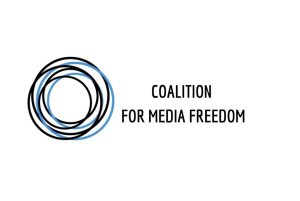Media associations and journalistic organizations — the Association of Independent Electronic Media (ANEM), Independent Journalists’ Association of Serbia (NUNS), Journalists’ Association of Serbia (UNS), Local Press, and the Media Association — have agreed on a joint proposal regarding necessary changes to the project-based co-financing process for media content, which has been officially submitted to the Ministry of Information and Telecommunications.
The proposals for amending legal acts and introducing concrete changes to the project-based co-financing process are based on agreed conclusions from internal consultations held with members of this year’s grant commissions, as well as with representatives of the aforementioned media and journalistic associations and the self-regulatory body, the Press Council.
We hope these proposals will contribute to concrete steps being taken to address systemic shortcomings and reduce abuses at all levels of government, ultimately leading to an improved project-based co-financing process in the future.
List of Proposals:
Proposals related to the project-based co-financing process:
- Introduce a limit allowing one candidate to participate in no more than five commissions per year;
- Introduce a rule prohibiting the same candidate from serving on the same commission for two consecutive years at the national, provincial, or local level;
- Improve and increase the transparency of the evaluation process for media content project funding;
- Introduce a mandatory final meeting of all commission members prior to agreeing on the proposed distribution of funds;
- Require commission members to provide a justification for each score awarded to submitted media projects;
- Establish criteria for determining the representativeness of nominating organizations, based on decisions made during the selection process for members of the REM Council, in the context of authorized nominators;
- Align commission member fees with the number of projects they are evaluating, following the model used by the Ministry of Information and Telecommunications;
- For each public call, publish an Analysis of Required Media Content, as prescribed by the Law on Public Information and Media.
Proposals Related to the Use and Functioning of the Unified Information System (UIS) of the Ministry of Information and Telecommunications (MIT):
- Introduce an obligation for the MIT to collect feedback and complaints regarding the functioning of the UIS, as a prerequisite for resolving technical issues before and during the next project funding cycle;
- Ensure that all documentation published on the UIS is machine-readable;
- Within the UIS, establish a searchable database of media projects categorized by publishers and media outlets at the national, provincial, and local levels, in order to improve accessibility and enhance transparency of the process across all levels of government, and to allow public insight into all projects supported through public co-financing;
- Within the UIS, establish a searchable database of commission members at all levels of government, searchable by name, to further improve the transparency of the project-based co-financing process.
Proposals Regarding the Evaluation of Candidates for Commission Membership:
- Master’s and doctoral degrees should be scored differently;
- A wider scoring range should be introduced for professional experience, as currently 16 and 40 years of media work receive the same number of points;
- Eliminate the scoring of professional papers and conferences, as these have often been subject to abuse and manipulation in previous application processes;
- Academic papers and participation in scientific conferences should receive a smaller number of points;
- Eliminate the possibility of awarding points for writing or participating in project implementation, as these contributions are often unverifiable;
- Eliminate the possibility of awarding points for previous participation in project evaluation commissions.
Proposal Regarding the Evaluation of Media Projects (Supported by the Press Council):
- Media outlets that have been subject to sanctions or penalties by the Regulatory Authority for Electronic Media (REM) or the Press Council should be penalized by receiving negative points or a deduction from their total score — instead of being awarded points, which is currently the case.
Signatories:
ANEM (Association of Independent Electronic Media)
UNS (Journalists’ Association of Serbia)
Local Press
NUNS (Independent Journalists’ Association of Serbia)
Media Association




